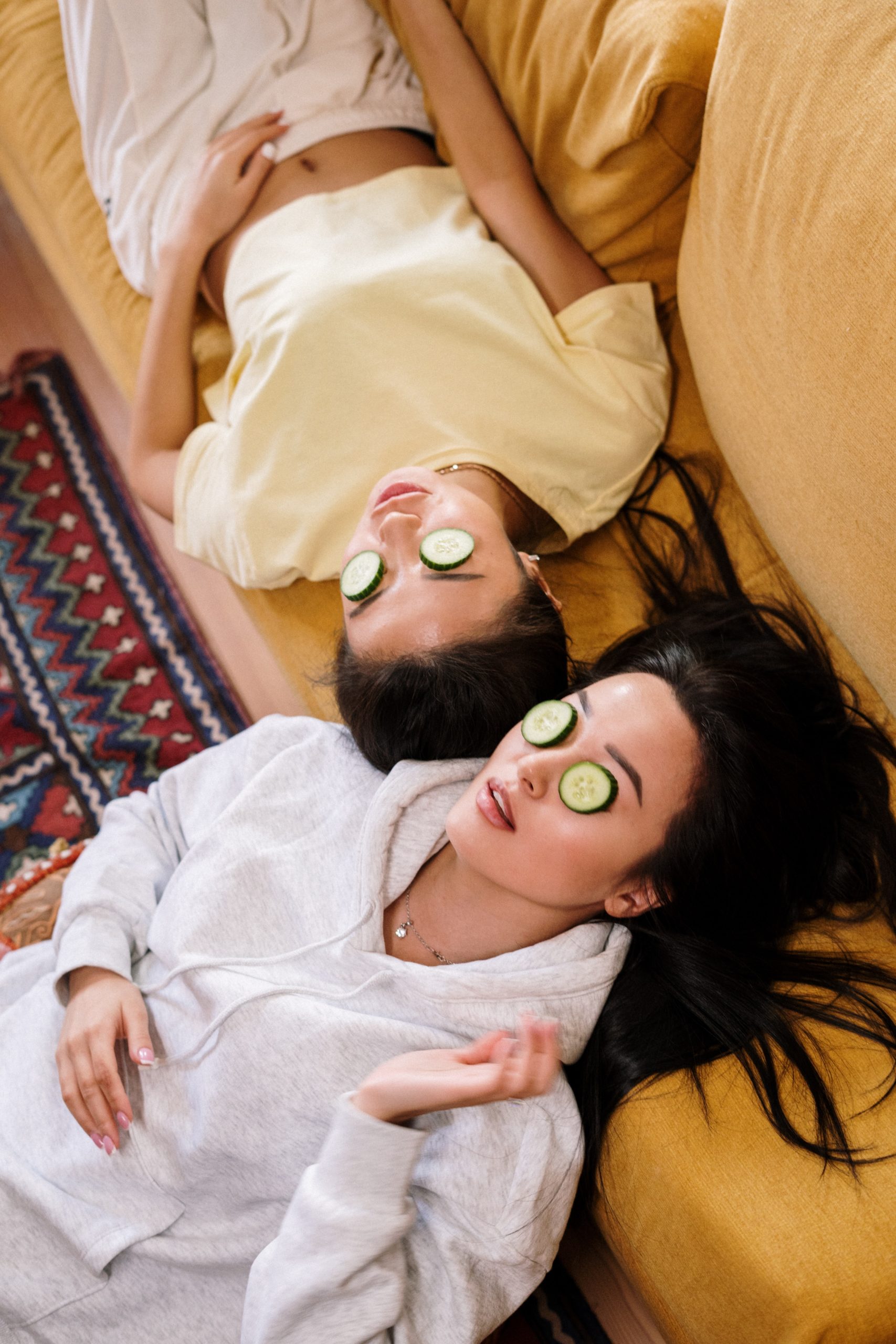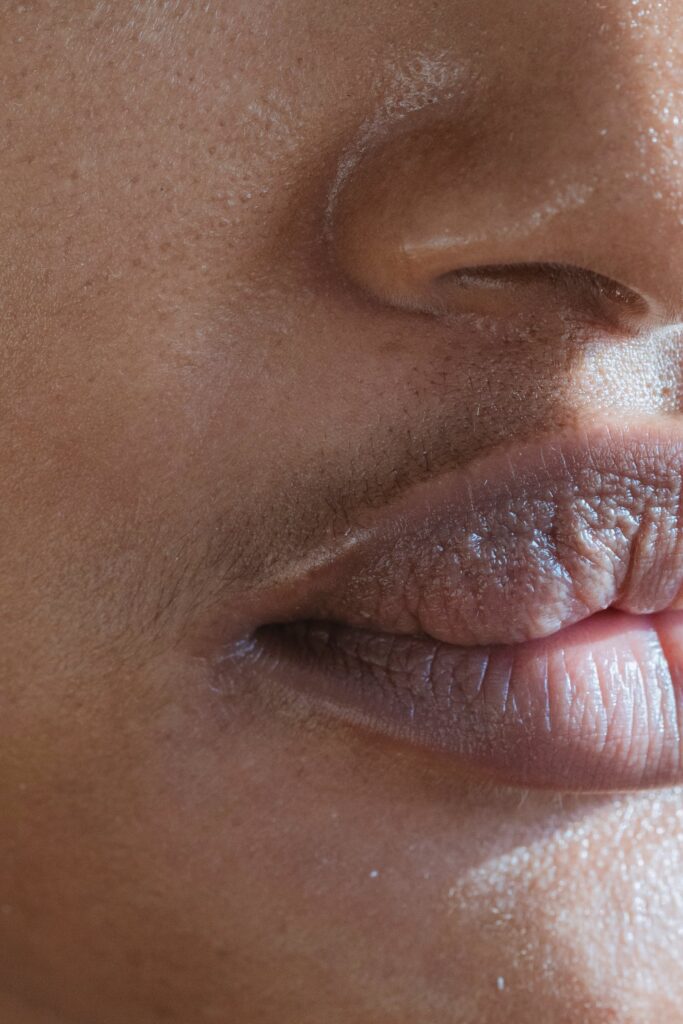Balancing oily skin
We know by now that oily skin isn’t necessarily the enemy, although sometimes, it can sure feel like it.
A completely matte complexion might not be something to aspire to, but there is satisfaction to be found in balance: after all, your skin needs oil, but an excess of the shiny stuff is less than appealing.The thing to remember though, is that you can’t ‘get rid’ of oily skin entirely, and nor should you feel compelled to: real, healthy skin doesn’t look like an Instagram filter. But keeping your face on the right side of shiny? That is totally possible. Understanding your oily skin is the key to managing (not eliminating) it, and once harmony is restored, you’ll have a happy, healthy complexion that looks glowy, never greasy.
What causes oily skin?
‘Our skin’s oil is called sebum. It’s produced by the sebaceous gland in the hair follicle,’ explains Andrea Pfeffer, founder of Pfeffer Sal. ‘Per cm2, the skin on our face has more hair follicles than on the rest of our body, which is why we experience oiliness mainly on the face.’ This sebum does in fact perform an important function, working to ‘lubricate the skin, limit the growth of bacteria and prevent dryness and dehydration,’ adds Pfeffer. When things are in balance, your skin will produce just the right amount of oil to keep it functioning and resilient – but there are many things that can tip the scales, leading to excess oil and pesky breakouts.
1. Master Your Daily Cleansing Routine
When you have oily skin, the urge to wash your face at every available opportunity can be strong. But according to facialist Joanne Evans, your frequent face-washing habit may actually be making things worse. It seems logical that removing the skin’s oil would be the best way to clear oily skin, but over-cleansing actually activates further oil production,’ she says. Simply speaking, when you cleanse so much you remove the skin’s natural – and necessary – sebum reserves, it’s going to rectify things by producing more.
2. Be Wary Of Products Formulated For Oily Skin
Believe it or not, products specially formulated for minimising oiliness often exacerbate the situation, as so many contain harsh ingredients that sweep away every last drop of sebum from the skin (and we all know what that means). We were taught for so long that stripping the skin of oils is the way to treat it, but actually that’s wrong. When the skin is stripped or dried out it goes into oil production overload,’ says Marshall. According to Pfeffer, the main culprits are products containing alcohols, astringents and sulphates, while Marshall adds benzoyl peroxide and daily AHAs into the mix too. This means many old-school toners and foaming cleansers are off the table – and for good reason!’, she says. ‘Whilst they’ll have a satisfying short-term effect of removing the excess oil on the surface of the skin, over time the lack of oil in your skin will trigger excess oil production.
3. Don’t Ditch The Moisturiser
A common misconception is that skin can either be oily or dehydrated – but in fact, it can be both at the same time. This means there’s little sense in ditching the hydrating products which are, in fact, essential in every skin routine – no matter your skin type. Hydrating products are necessary to maintain moisture levels and prevent dehydration. But before you reach for the first face cream within your grasp, consider that your choice of product is an important one. If you’re worried about blackheads and blemishes as well as that dreaded shine, it’s best to avoid those that are super-creamy, heavy and occlusive. ‘Your skin probably won’t appreciate thick heavy moisturisers, so avoid any creams with rich plant butters as these are likely to be too rich and lead to congestion,’ advises Pfeffer.
4. Get To Grips With Salicylic
Acids can be beneficial in any regime, but leave-on BHAs like salicylic acid play an especially important role in controlling overzealous oil production, which in turn minimises the development of blackheads and blemishes.
5. Address Your Diet
According to Evans, the root of your oily skin issues could actually lie in your gut. ‘If you suffer from oily skin, avoid sugar and dairy, as they feed and increase oil production,’ she explains.’What’s more, a diet deficient in zinc, magnesium, vitamin B and omega 3 may contribute to oil production. Pfeffer agrees, recommending in particular that we eat more zinc-rich foods. ‘Zinc helps to regulate the oil-producing glands, so they behave better! Great sources include shellfish, legumes and nuts. And of course, it’s crucial to consider your intake of sugar. ‘A high sugar intake can also increase oil production, as insulin creates the hormone IGF-1 which can increase the production of sebum,’ explains Pfeffer.
Article from elle.com

